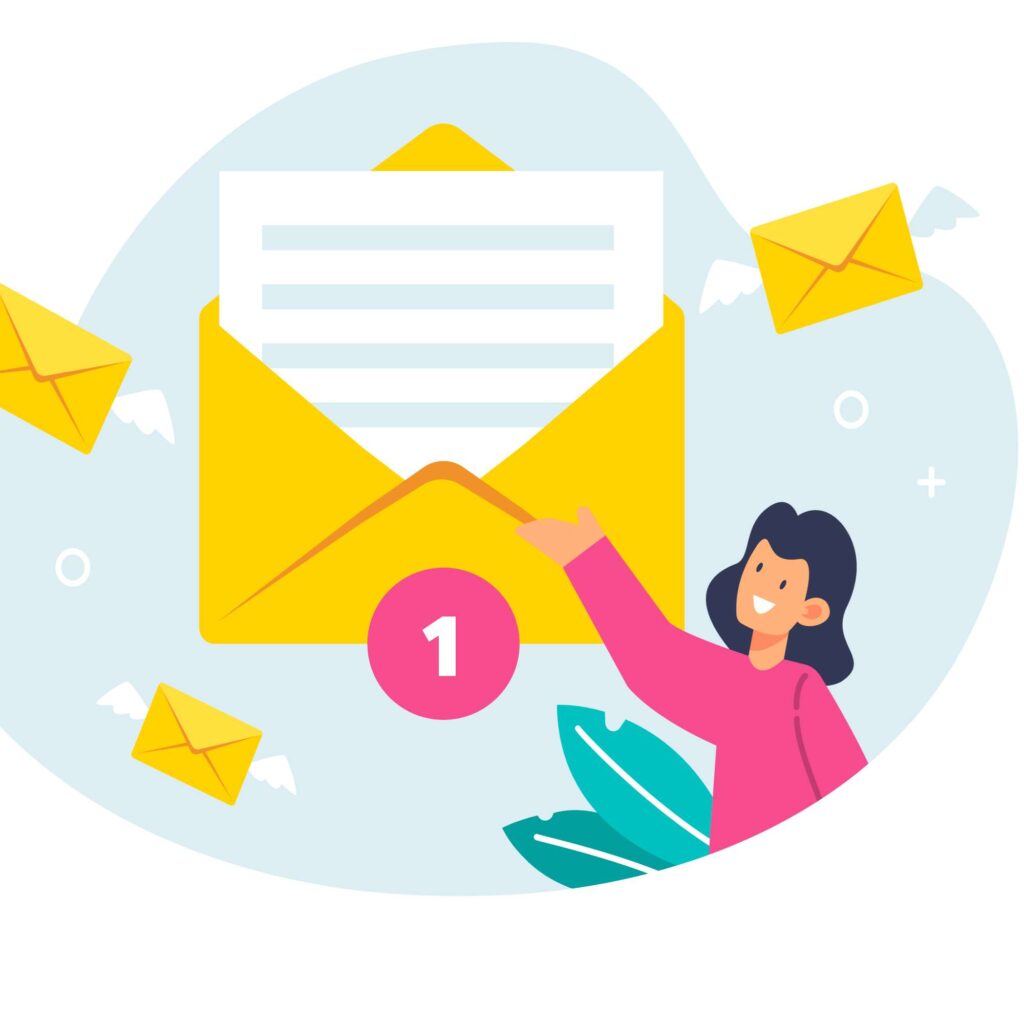AI Solution Case Study: Automated Email Replies and Lead Nurturing Flow
Get faster response speed, consistency, and significant reduction in manual workload for the sales and support teams. AI delivers timely and personalized responses to help maintain engagement throughout the sales cycle, leading to more closed deals.

Client
A mid-sized B2B software company specializing in SaaS solutions for project management. The company receives hundreds of inquiries each week through its website and support forms, ranging from product questions to requests for demos. With a growing customer base, they want to ensure that potential leads receive timely responses and follow-up emails to guide them through the purchase process, while existing customers are engaged post-purchase for upselling and support.
Situation and Need
Our client noticed that their sales and support teams were overwhelmed by the volume of incoming emails and inquiries, resulting in delayed responses, missed follow-up opportunities, and a lack of structured lead nurturing. This led to potential customers losing interest or choosing competitors. They needed a system that could automatically respond to inquiries, categorize leads based on their needs, and initiate personalized follow-up sequences to guide prospects through the sales funnel while maintaining engagement with existing customers after transactions.
Our AI Solution
Deploy an AI-driven system that automatically replies to user emails or form submissions, while categorizing inquiries based on content and intent. The AI uses natural language processing (NLP) to identify the type of inquiry (e.g., product question, demo request, support need) and sends a tailored response. It then triggers a lead nurturing flow, personalized to the user’s interaction history.
Data Sources:
Customer data from the CRM (e.g., past purchases, previous interactions)
Form submission data (e.g., product of interest, inquiry type)
Email content and metadata (e.g., sentiment analysis, urgency of the request)
AI Usage:
AI categorizes each email/form submission to determine the appropriate response.
AI models prioritize responses based on the urgency of the inquiry and sentiment.
The system automates personalized follow-up emails based on user behavior, such as viewing a product page or requesting a demo, guiding them through the sales process.
For existing customers, the AI sends tailored follow-up emails post-purchase to offer tutorials, upsell opportunities, or request feedback.
Implementing Our AI Solution
Integration with CRM and Email Systems: Connect the client’s CRM and email systems with the AI platform to access user history and track interactions.
AI Setup: Using past email data to accurately categorize common inquiries and understand user intent. For example, distinguish between a demo request and a support issue.
Template Creation: Develop dynamic email templates that adjust content based on detected inquiry type, user behavior, and past interactions. For example, demo requests receive a different flow than product troubleshooting inquiries.
Automation Workflow Setup: Use automation tools like Make.com to design workflows that trigger follow-up emails after the initial AI-generated response, adjusting based on user engagement (e.g., clicking a demo link).
Testing and Optimization: Run A/B tests on different response types and email sequences to refine the approach and ensure the AI selects the most effective responses.
Issues and Specifics to Look Out For
When implementing AI categorization, the model might struggle with less common inquiries. To address this, we can use a broader range of historical data and set up a fallback for uncertain cases, routing them to a human agent.
When automating follow-up sequences, overly frequent emails could cause user frustration. Implementing behavior-based triggers helps adjust the pace, so the AI slows down communication if a user shows low engagement.
When integrating with the CRM, data synchronization issues might occur if customer information is not up-to-date. Regular data audits ensure that the AI uses the latest information for personalization.
Results from Implementing AI Tools
The client can expect a 30-50% reduction in average response time for initial inquiries, improving lead engagement rates by 15-25%. Follow-up emails can increase conversion rates from inquiry to demo booking by 20%, with studies indicating that timely and personalized follow-ups lead to a 36% higher chance of closing a sale. Automated post-purchase emails can increase upsell opportunities by 10-15% and reduce customer churn by maintaining engagement.
Why Use AI?
You will get enhanced response speed and consistency, noting a significant reduction in manual workload for the sales and support teams. They value the AI’s ability to deliver timely and personalized responses, which helps maintain engagement throughout the sales cycle. The seamless transition from automation to human interaction for complex queries ensures customer satisfaction remains high.
AI Services Used in This Solution
Data Integration & Analysis: Sync customer data from the CRM and email system to ensure accurate AI-driven responses.
AI Development: Use the AI model to accurately categorize and respond to different types of inquiries.
Email Sequence Design: Create dynamic and adaptive email templates for different lead nurturing scenarios.
Automation Workflow Setup: Design and implement workflows for automated email sequences post-inquiry and post-purchase.
Performance Monitoring: Continuously track response rates, lead conversion metrics, and adjust AI models and workflows for ongoing improvement.
Support Transition Setup: Establish clear rules for transferring complex or high-priority inquiries from AI to human agents, ensuring smooth escalation when needed.